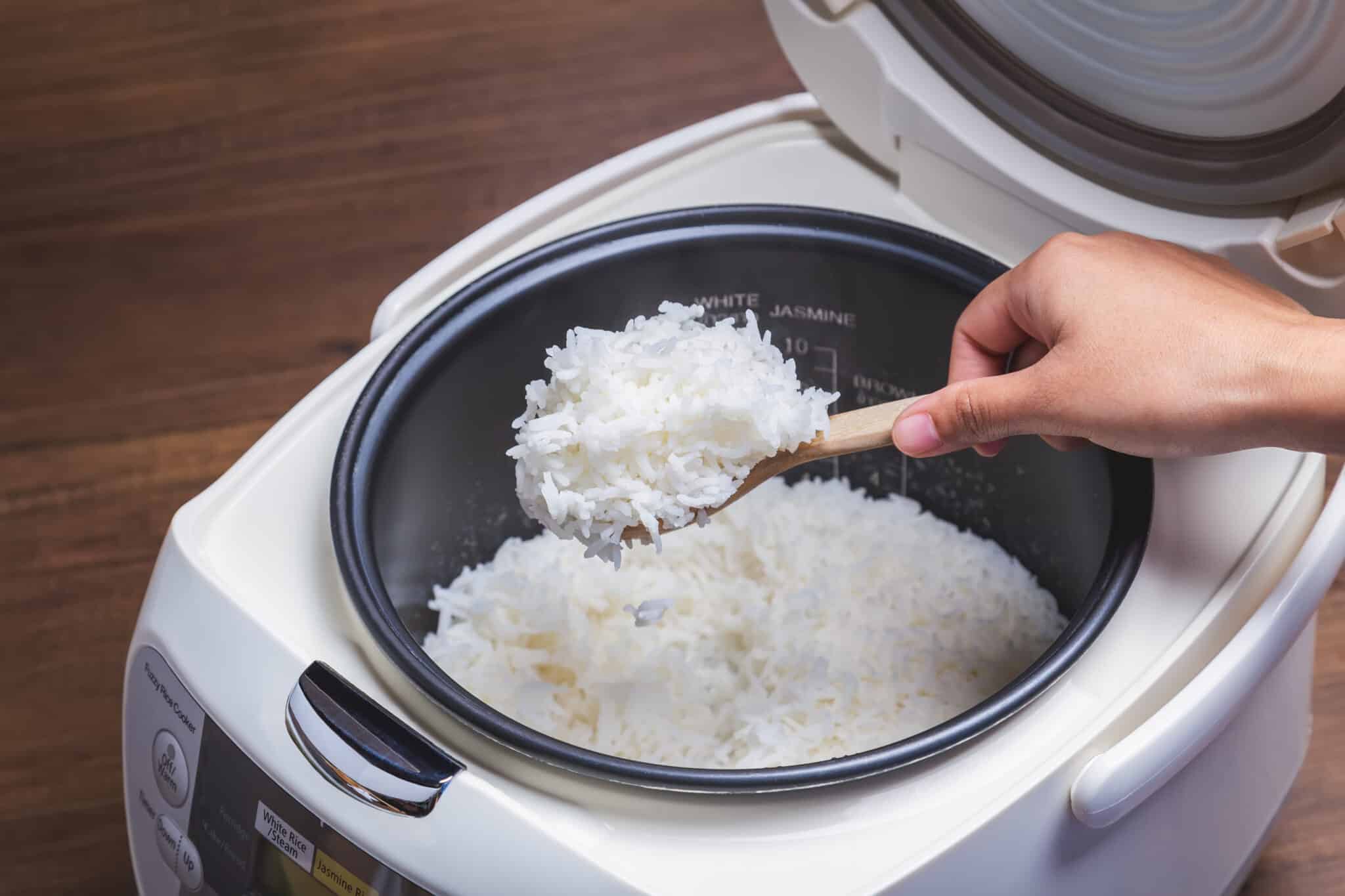

Articles
Why Does My Rice Cooker Smell Bad
Modified: October 20, 2024
Discover the reasons behind the unpleasant odor coming from your rice cooker with our informative articles. Learn how to prevent and eliminate bad smells in your rice cooker.
(Many of the links in this article redirect to a specific reviewed product. Your purchase of these products through affiliate links helps to generate commission for Storables.com, at no extra cost. Learn more)
Introduction
Owning a rice cooker is a convenient and efficient way to prepare delicious rice dishes. However, if you’ve noticed an unpleasant smell coming from your rice cooker, it can be quite disconcerting. A smelly rice cooker not only affects the taste of your cooked rice but also raises concerns about hygiene and cleanliness.
In this article, we will explore the common causes of a smelly rice cooker and provide you with practical tips on how to prevent and eliminate these odors. By following these steps, you can ensure that your rice cooker not only cooks delicious rice but also remains fresh and odor-free.
Key Takeaways:
- Keep your rice cooker fresh by cleaning it regularly and using natural cleaners like vinegar and baking soda to eliminate odors caused by mold, mildew, and lingering food smells.
- Prevent odors by rinsing rice before cooking, avoiding overfilling, and ensuring proper sealing of leftovers. Regular inspection and thorough drying after cleaning are also essential for maintaining an odor-free rice cooker.
Read more: Why Does My AC Smell Bad
Common Causes of a Smelly Rice Cooker
There are several factors that can contribute to a smelly rice cooker. Understanding these causes can help you address the issue effectively. Here are the most common ones:
- Improper Cleaning and Maintenance: One of the primary reasons for a smelly rice cooker is improper cleaning and maintenance. Over time, food particles and residue can accumulate inside the cooker, leading to unpleasant odors. If you don’t clean your rice cooker regularly, these residues can become a breeding ground for bacteria and mold.
- Mold and Mildew Build-up: If you notice a musty smell coming from your rice cooker, it could indicate the presence of mold or mildew. Moisture, coupled with leftover rice or other food particles, can create an ideal environment for mold and mildew growth. Mold and mildew not only cause foul odors but can also have negative health effects if consumed in the rice or steam.
- Lingering Food Odors: Sometimes, the smell from the previous meal can linger inside the rice cooker, even after cleaning. Strongly flavored dishes or spices can leave behind a residual odor that can mix with the fresh rice, resulting in an unappetizing smell.
Now that we have identified the common causes of a smelly rice cooker, let’s explore some practical steps to prevent and eliminate these odors.
Improper Cleaning and Maintenance
Proper cleaning and maintenance are essential to keep your rice cooker free from unpleasant odors. Here are some common mistakes people make when cleaning their rice cookers:
- Not Cleaning Immediately: After using your rice cooker, it’s important to clean it as soon as possible. Leaving the cooker uncleaned for an extended period can result in food residue hardening and becoming more difficult to remove.
- Using Abrasive Cleaners: Avoid using abrasive cleaners or scrubbing pads on the inner pot of your rice cooker, as they can damage the non-stick coating. Instead, use a gentle sponge or cloth to clean the pot and other parts.
- Ignoring the Seals and Lid: Make sure to pay attention to the seals and lid of your rice cooker. These areas can accumulate food debris and moisture, leading to the development of unpleasant odors. Clean them thoroughly and ensure they are completely dry before reassembling the cooker.
- Not Emptying the Water Pan: Some rice cookers have a water pan that collects condensation during the cooking process. It is important to empty and dry the water pan after each use to prevent the growth of mold or mildew.
- Skipping Regular Deep Cleans: In addition to daily cleaning, it’s crucial to give your rice cooker regular deep cleans to remove any stubborn stains or build-up. Follow the manufacturer’s instructions for deep cleaning or use a mixture of vinegar and water to eliminate any lingering odors.
By following these cleaning tips and maintaining your rice cooker regularly, you can prevent the build-up of food residue and keep it smelling fresh.
Mold and Mildew Build-up
Mold and mildew are common culprits behind the unpleasant smell in a rice cooker. These fungi thrive in a moist and warm environment, making the interior of a rice cooker an ideal breeding ground. If left unaddressed, mold and mildew can not only cause foul odors but also pose health risks. Here’s how you can tackle mold and mildew build-up in your rice cooker:
- Regular Inspection: Check your rice cooker regularly for any signs of mold or mildew growth. Look for black or green spots on the inner pot, lid, and other parts of the cooker.
- Vinegar Solution: Vinegar is a natural and effective cleaner that can help remove mold and mildew. Fill the inner pot with a mixture of equal parts vinegar and water. Let it sit for a few hours to dissolve the mold and mildew. Then, scrub the affected areas gently with a sponge and rinse thoroughly.
- Baking Soda Paste: Another option is to create a paste with baking soda and water. Apply this paste to the affected areas and let it sit for a few hours. Then, scrub the areas gently and rinse well. Baking soda is known for its odor-absorbing properties and can help eliminate the musty smell caused by mold and mildew.
- Sunlight Exposure: After cleaning your rice cooker, place the parts in direct sunlight for a few hours. Sunlight is a natural disinfectant and can help kill any remaining mold spores. Additionally, it helps to remove any residual moisture, preventing future mold growth.
- Proper Storage: After cleaning your rice cooker, make sure it is completely dry before storing it. Any lingering moisture can contribute to mold and mildew growth. Store the rice cooker in a dry and well-ventilated area to minimize the chances of mold and mildew formation.
By following these steps and regularly inspecting and cleaning your rice cooker, you can effectively eliminate mold and mildew build-up and ensure a fresh and odor-free cooking experience.
Lingering Food Odors
Have you ever noticed that your rice cooker retains the strong smell of the previous meal, even after cleaning? Lingering food odors can be quite off-putting, especially when you’re preparing a different type of rice. Here are some tips to eliminate lingering food odors from your rice cooker:
- Use Distilled White Vinegar: Fill the inner pot with a mixture of water and distilled white vinegar in equal parts. Let it sit for a few hours or overnight. The vinegar helps neutralize and remove the lingering food odors. Afterward, rinse the pot thoroughly with water.
- Lemon Juice Solution: Another effective natural odor eliminator is lemon juice. Squeeze the juice of one lemon and mix it with water. Pour this mixture into the inner pot and let it sit for a few hours. Then, rinse the pot well with water to remove any residual lemon scent.
- Baking Soda Absorption: Baking soda is known for its ability to absorb odors. Sprinkle some baking soda inside the inner pot and let it sit for a few hours or overnight. The baking soda will help absorb the food odors. Afterward, rinse the pot thoroughly to remove any traces of baking soda.
- Boiling Water with Citrus Peels: Another natural way to eliminate food odors is by boiling water with citrus peels, such as lemon or orange peels. Simply fill the inner pot with water, add the citrus peels, and bring it to a boil. Allow it to simmer for a few minutes, then discard the water and rinse the pot.
- Proper Ventilation: Ensure that the steam vent on your rice cooker is clean and free from any blockages. Proper ventilation helps prevent the accumulation of food odors inside the cooker.
By utilizing these tips, you can effectively remove lingering food odors from your rice cooker and enjoy a fresh and pleasant cooking experience.
To remove the bad smell from your rice cooker, mix equal parts water and vinegar, then run a cycle. After that, rinse the cooker thoroughly with water and wipe it dry.
Read more: Why Does My Toothbrush Smell Bad
Tips for Preventing and Eliminating Odors
Preventing and eliminating odors in your rice cooker requires proactive measures and regular maintenance. Here are some additional tips to help you keep your rice cooker smelling fresh:
- Always Rinse Rice: Before cooking rice in your rice cooker, rinse it thoroughly to remove any excess starch. This helps prevent the rice from sticking to the bottom of the pot and creating a burnt smell.
- Avoid Overfilling: Be mindful not to overfill the rice cooker with rice and water, as this can cause boil overs and leave a lingering odor. Follow the manufacturer’s instructions and recommended measurements for the specific type of rice you are cooking.
- Use Quality Ingredients: The quality of ingredients you use can contribute to the overall smell of your cooked rice. Opt for fresh and high-quality rice, spices, and any additional ingredients to ensure the best flavor and aroma.
- Properly Seal Leftovers: When storing leftover rice in the refrigerator, make sure it is well-sealed in an airtight container or covered with plastic wrap. This prevents any odors from permeating the rice cooker when reheating the leftovers.
- Regularly Replace Seals: Over time, the seals on your rice cooker may wear out or become damaged, leading to unpleasant odors. Check the seals periodically and replace them if needed to maintain optimal performance.
- Avoid Strongly Flavored Rice: Strongly flavored rice dishes, such as those with heavy spices or sauces, can leave behind a lingering smell. If you want to cook fragrant dishes, consider using a separate pot or insert for those meals to prevent the smell from transferring to your regular rice cooker.
- Remove Excess Water: After cooking rice, make sure to remove any excess water or condensation from the lid, inner pot, and water pan. This helps prevent the growth of mold and mildew.
- Keep the Rice Cooker Dry: After cleaning your rice cooker, ensure that all the parts are completely dry before reassembling and storing it. Moisture can lead to the growth of bacteria and mold, causing unpleasant smells.
By following these preventive measures and implementing regular cleaning and maintenance routines, you can effectively prevent and eliminate odors in your rice cooker.
Cleaning Your Rice Cooker
A clean rice cooker not only ensures the longevity of the appliance but also helps prevent the development of odor-causing bacteria and mold. Here’s a step-by-step guide to cleaning your rice cooker effectively:
- Unplug the Rice Cooker: Safety should always come first. Before cleaning your rice cooker, make sure it is unplugged and completely cooled down.
- Remove the Inner Pot: Take out the inner pot from the rice cooker and empty any leftover rice or water. Dispose of any remaining food scraps in the trash or compost bin.
- Hand Wash the Inner Pot: Wash the inner pot with warm soapy water and a non-abrasive sponge or cloth. Pay special attention to the bottom and sides of the pot, where rice and residue tend to accumulate. Rinse thoroughly with clean water.
- Clean the Lid and Accessories: Scrub the lid, measuring cup, and any other removable accessories with warm soapy water. Ensure that you remove any food particles or residue from all parts. Rinse well with clean water.
- Wipe Down the Exterior: Use a damp cloth or sponge to wipe down the exterior of the rice cooker. Pay attention to any grease or spills that may have accumulated on the surface. Dry the exterior thoroughly with a clean towel.
- Deodorize with Vinegar: If you notice any persistent odor in your rice cooker, you can deodorize it by filling the inner pot with a mixture of equal parts water and distilled white vinegar. Allow this mixture to sit for a few hours or overnight. Then, empty the vinegar solution and rinse the pot thoroughly with clean water.
- Allow for Drying: After cleaning, let all the components of the rice cooker air dry completely. Avoid reassembling the rice cooker until everything is thoroughly dry to prevent the growth of mold or mildew.
- Reassemble and Store: Once all the parts are dry, reassemble the rice cooker and store it in a cool, dry place until your next use.
Remember to consult the manufacturer’s instructions for any specific cleaning recommendations tailored to your rice cooker model.
By following these steps and maintaining a regular cleaning routine, you can keep your rice cooker fresh, clean, and odor-free.
Removing Mold and Mildew
If you discover mold or mildew in your rice cooker, it’s essential to take immediate action to eliminate it. Mold and mildew not only cause unpleasant odors but can also pose health risks. Here’s how you can effectively remove mold and mildew from your rice cooker:
- Safety Precautions: Before you begin, ensure you are wearing rubber gloves and working in a well-ventilated area to protect yourself from any potential allergens or spores.
- Disassemble the Rice Cooker: Take apart all the removable parts of the rice cooker, including the inner pot, lid, and any accessories.
- Inspect for Mold and Mildew: Carefully examine each component for signs of mold or mildew growth. Look for dark spots, patches, or a slimy texture on the surfaces.
- Vinegar and Water Solution: Fill a basin or sink with equal parts water and distilled white vinegar. Submerge the affected components in the solution and let them soak for a few hours.
- Scrub with a Brush: Use a soft brush, such as a toothbrush or dish brush, to scrub the mold and mildew spots gently. Pay extra attention to any hard-to-reach areas or crevices where mold might be lurking.
- Rinse Thoroughly: After scrubbing, rinse all the components with clean water to remove any residue and vinegar solution.
- Sun-Dry: Place the disassembled components in direct sunlight to dry. Sunlight has natural disinfectant properties and can help kill any remaining mold spores.
- Final Inspection: Once the components are completely dry, inspect them again to ensure there is no trace of mold or mildew. If you still notice any signs of mold, repeat the cleaning process or consider contacting the manufacturer for further assistance.
- Reassemble and Store: Once all the parts are mold-free and fully dry, reassemble the rice cooker and store it in a clean and dry area until your next use.
Remember, prevention is key to avoiding mold and mildew in the future. Follow proper cleaning and maintenance practices, ensure thorough drying, and store the rice cooker in a well-ventilated area to minimize the risk of mold and mildew growth.
By following these steps, you can effectively remove mold and mildew from your rice cooker and ensure a clean and fresh cooking experience.
Eliminating Lingering Food Odors
If your rice cooker has persistent lingering food odors, there are several methods you can use to eliminate them and ensure your cooked rice smells fresh and appetizing. Here are some effective ways to get rid of those stubborn food odors:
- Distilled White Vinegar: Fill the inner pot with a mixture of equal parts water and distilled white vinegar. Let it sit for a few hours or overnight. The acidic properties of vinegar help neutralize and eliminate food odors. Afterward, rinse the pot thoroughly with clean water.
- Lemon Juice: The natural acidity and fragrance of lemon can help mask and eliminate food odors. Squeeze the juice of one lemon into the inner pot, add some water, and allow it to sit for a few hours. Then, rinse the pot well to remove any residual lemon scent.
- Baking Soda: Baking soda is known for its odor-absorbing properties. Sprinkle some baking soda inside the inner pot and let it sit for a few hours or overnight. The baking soda will help absorb the food odors. Afterward, rinse the pot thoroughly to remove any traces of baking soda.
- Citrus Peel: Citrus peels, such as orange or lemon peels, can naturally freshen the air and neutralize odors. Place a few citrus peels in the inner pot and let them sit for a few hours or overnight. Then, discard the peels and rinse the pot well.
- Activated Charcoal: Activated charcoal is highly effective at absorbing and eliminating odors. Place a small bowl or pouch filled with activated charcoal inside the rice cooker and leave it overnight. The charcoal will absorb the food odors. Remember to remove the charcoal before using the rice cooker again.
- Air Deodorizer: You can also use commercially available air deodorizing sprays or sachets specifically designed to eliminate food odors. Follow the instructions provided, ensuring not to spray or place the deodorizer directly on the inner pot or any other components of the rice cooker.
After applying any of these methods, rinse the pot thoroughly with clean water to remove any residue or scent from the cleaning agent. It’s important to note that these methods are primarily meant to eliminate odors and may not completely remove them if the source is deeply ingrained in the rice cooker’s materials.
By incorporating these techniques, you can effectively eliminate lingering food odors from your rice cooker and enjoy the delightful aroma of freshly cooked rice with each use.
Read more: Why Does My Basement Smell Like Sewer
Conclusion
A smelly rice cooker can be a nuisance, affecting the taste and overall experience of cooking rice. However, by understanding the common causes of these odors and following proper cleaning and maintenance practices, you can keep your rice cooker fresh and odor-free.
Improper cleaning and maintenance can lead to the build-up of food residue and the growth of bacteria and mold. It is crucial to clean your rice cooker regularly, using gentle cleaning agents and avoiding abrasive materials. Additionally, be vigilant about inspecting and addressing mold and mildew build-up promptly to prevent foul odors.
Lingering food odors can be a challenge, but there are various methods you can employ to eliminate them. Natural solutions like vinegar, lemon juice, baking soda, citrus peels, and activated charcoal effectively neutralize and absorb odors, ensuring a pleasant cooking experience.
Prevention is key to maintaining an odor-free rice cooker. Rinse rice before cooking, avoid overfilling, and ensure proper sealing of leftovers. Regular inspection, replacing seals as needed, and thorough drying after cleaning will also help prevent odor-causing issues.
In conclusion, by following the tips and techniques outlined in this article, you can prevent and eliminate odors in your rice cooker, ensuring that each batch of rice comes out fresh and delicious. A clean and odor-free rice cooker not only enhances the quality of your meals but also promotes a hygienic cooking environment for you and your family.
So, take the necessary steps to keep your rice cooker clean, address any odors promptly, and enjoy the delightful aroma of perfectly cooked rice every time.
Feeling inspired to keep your rice cooker spotless and odor-free? Dive deeper with our guide on rice cooker cleaning, where you'll find handy tips and tricks to maintain your appliance in mint condition. If you're battling persistent cooking smells, don't fret! Check out our recommended cleaning fans' favorite items that effectively combat these stubborn odors. Keep your kitchen fresh and your appliances in top shape by learning more from these essential reads.
Frequently Asked Questions about Why Does My Rice Cooker Smell Bad
Was this page helpful?
At Storables.com, we guarantee accurate and reliable information. Our content, validated by Expert Board Contributors, is crafted following stringent Editorial Policies. We're committed to providing you with well-researched, expert-backed insights for all your informational needs.

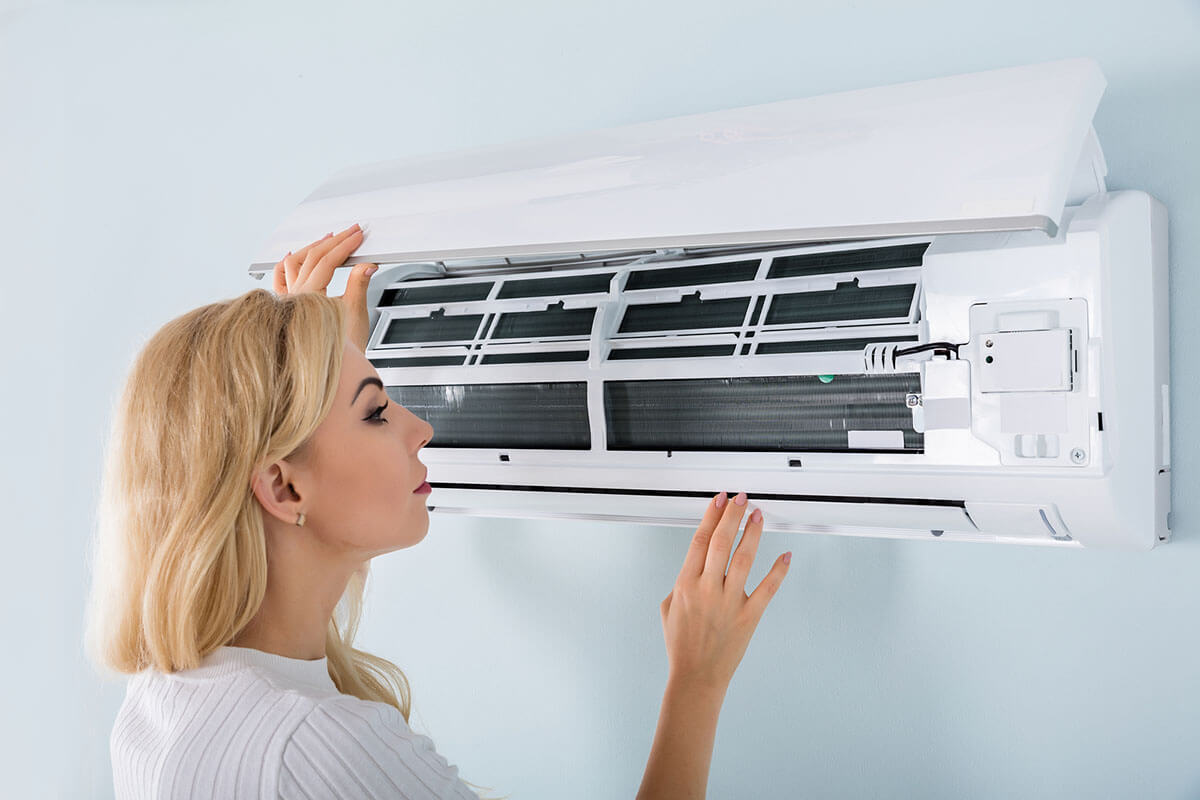
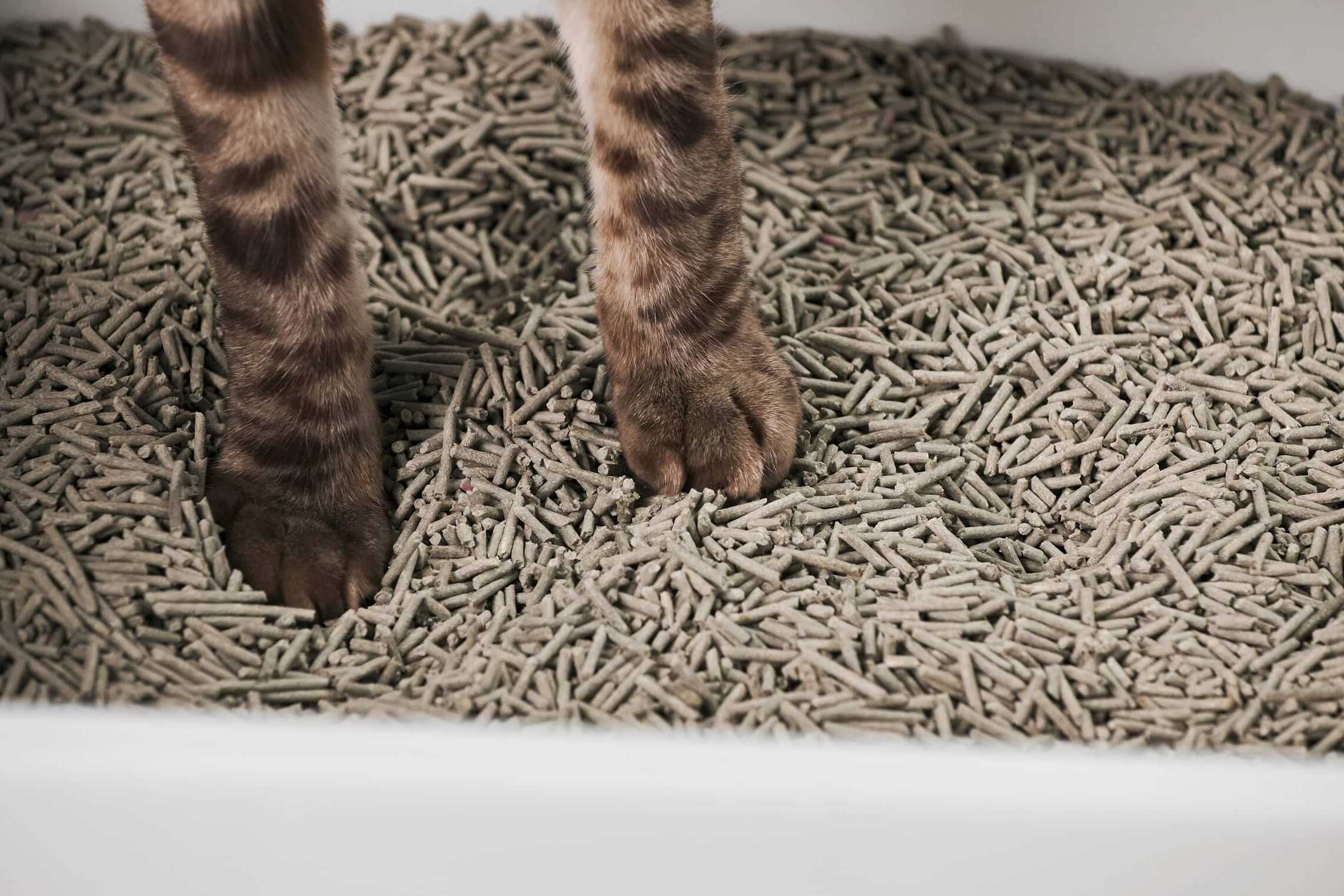
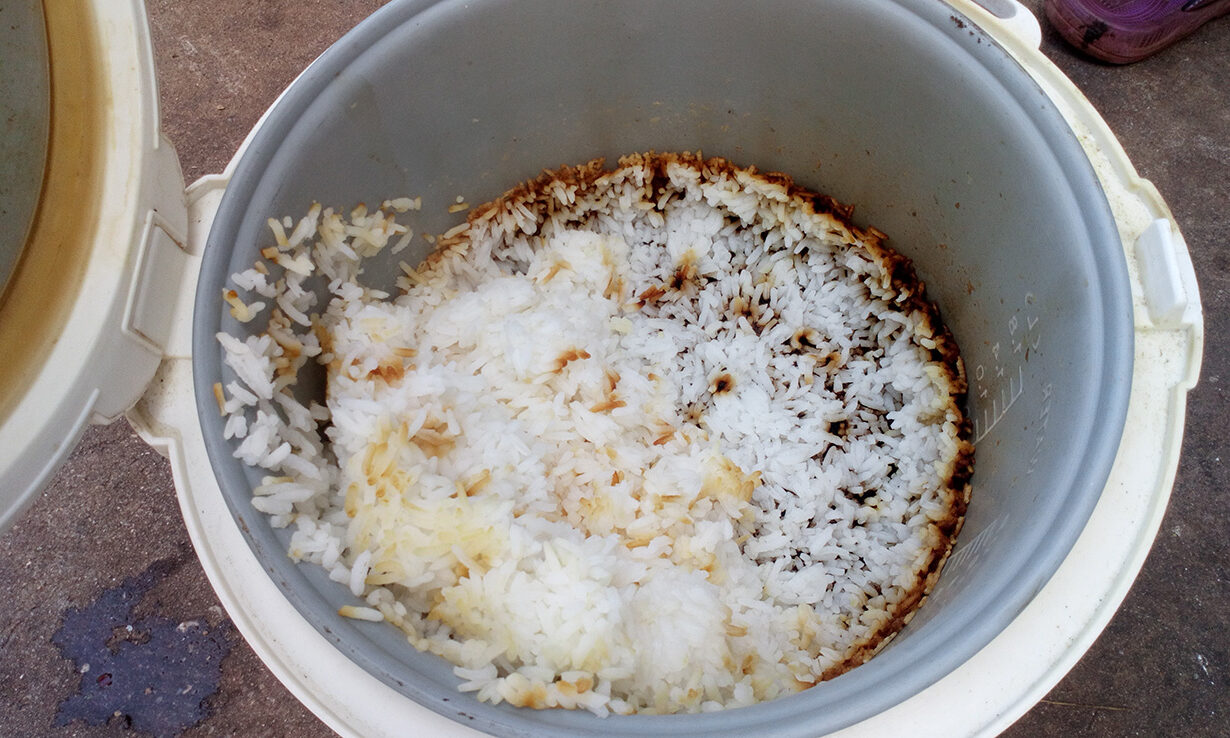


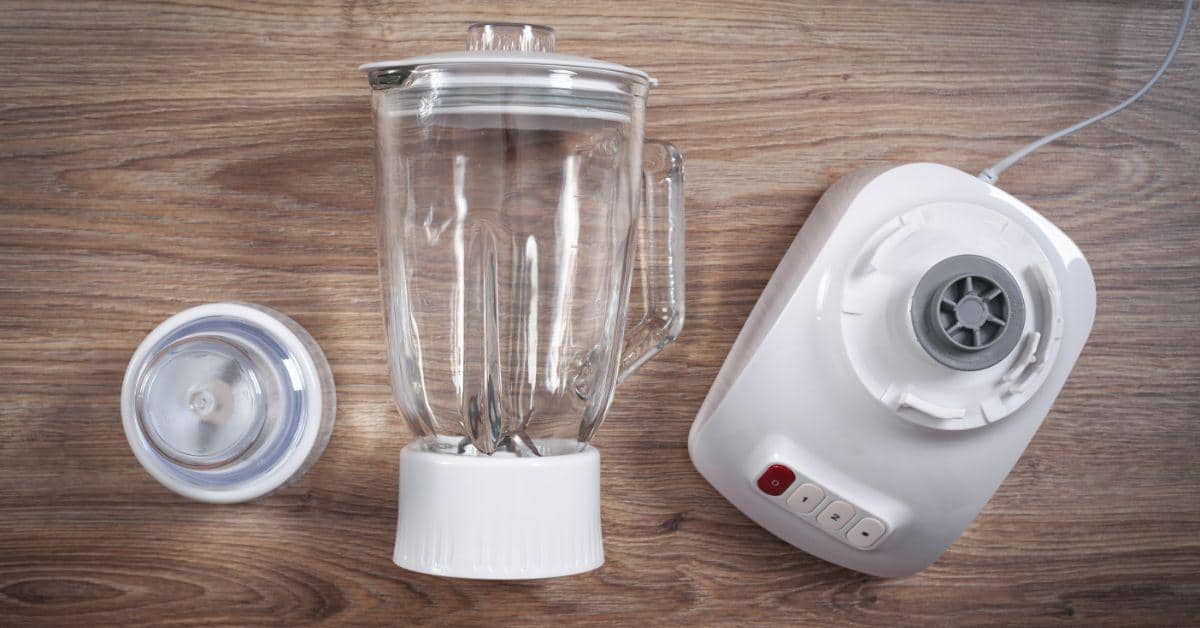
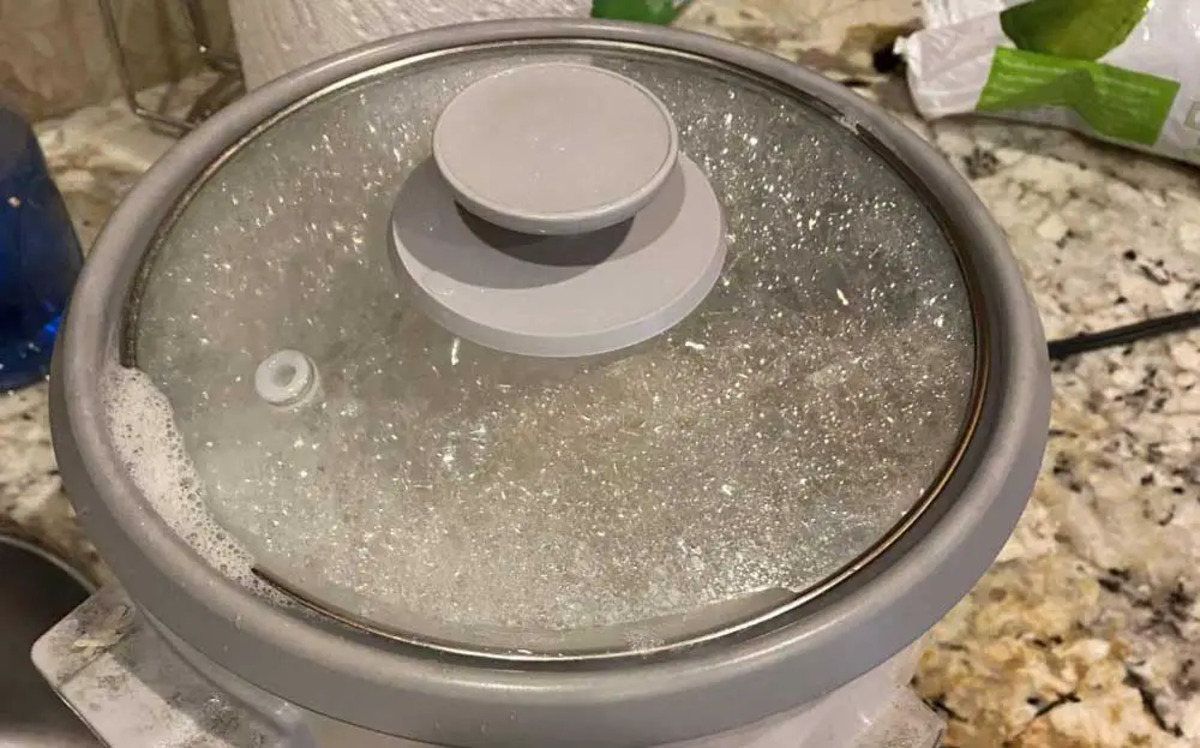
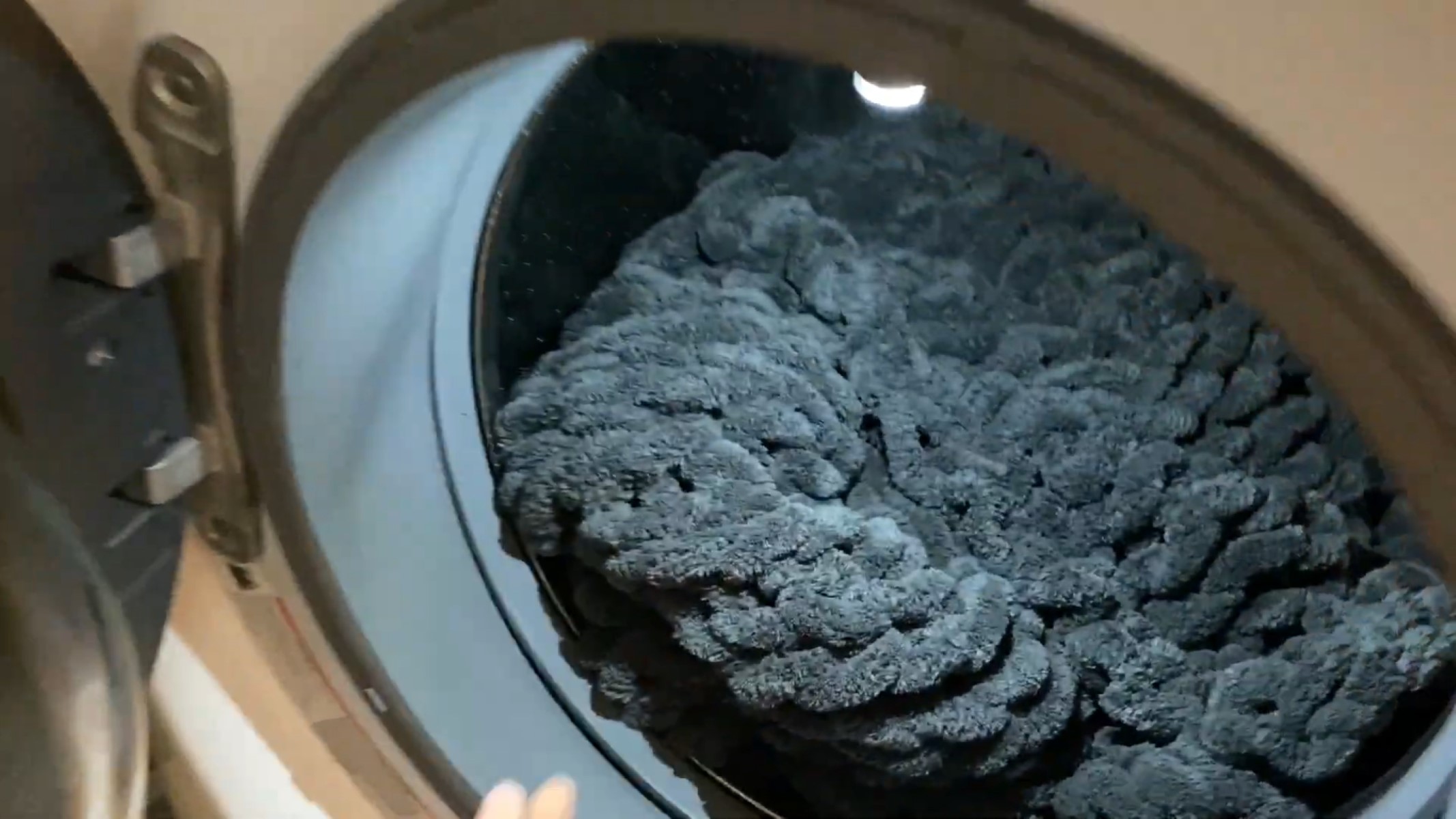



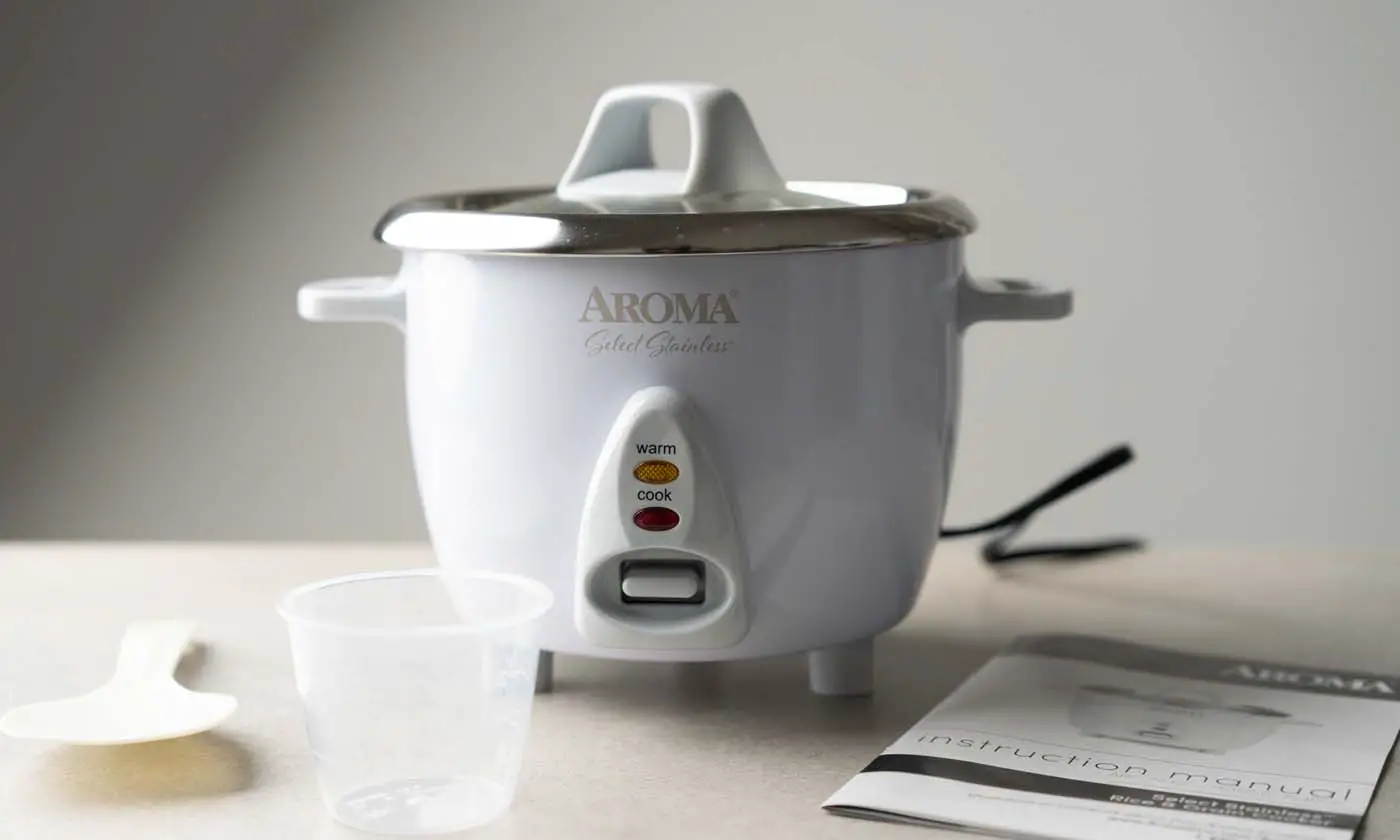

0 thoughts on “Why Does My Rice Cooker Smell Bad”